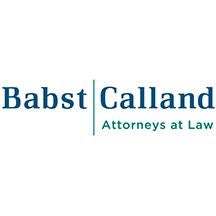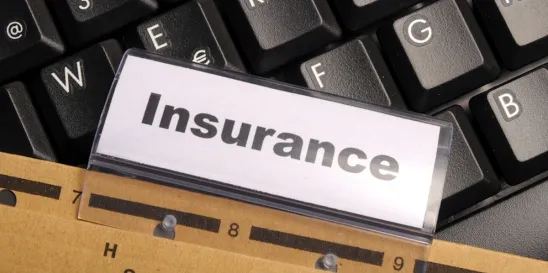A growing number of states, including Ohio, Pennsylvania, and Virginia, and most recently, West Virginia, now follow the “continuous-trigger” theory when examining coverage under an occurrence-based Commercial General Liability (CGL) insurance policy.
The West Virginia Supreme Court of Appeals recently confirmed in Westfield Ins. Co. v. Sistersville Tank Works, Inc., No. 22-848 (Nov. 8, 2023), that West Virginia law recognizes the “continuous trigger” theory to determine when insurance coverage is activated under a CGL policy that is ambiguous as to when coverage is triggered.
In 2016 and 2017, former employees of Sistersville Tank Works, Inc. (STW), filed three separate civil lawsuits West Virginia state court alleging personal injuries as the result of exposure to various cancer-causing chemicals while working around tanks that STW supposedly installed, manufactured, inspected, repaired or maintained between 1960 and 2006. STW purchased CGL policies from Westfield each year for the period 1985 to 2010. Typical of virtually all CGL policies, the Westfield CGL policies issued to STW were occurrence-based and provided coverage for bodily injury and property damage “which occurs during the policy period.” Under the Westfield CGL policies, the bodily injury or property damage must be caused by an “occurrence,” defined under the policy as “an accident, including continuous or repeated exposure to substantially the same general harmful conditions.”
Westfield denied coverage for the three underlying lawsuits and filed a declaratory judgment complaint in the United States District Court for the Northern District of West Virginia seeking a declaration that it owed no duty to provide a defense or indemnification to STW because the former employees were diagnosed after the expiration of the last CGL policy, and, therefore, STW could not establish that an “occurrence” happened within the policy period.
The District Court granted summary judgment to STW and found that Westfield owed a duty to defend and indemnify under all the Westfield CGL policies in effect between 1985 and 2010. Specifically, the District Court concluded that Westfield’s obligation to cover a bodily injury that “occurs during the policy period” was ambiguous because the language in Westfield’s CGL policies did not clearly identify when coverage was “triggered” when a claimant alleged repeated chemical exposures and the gradual development of a disease over numerous policy periods. The District Court predicted that the West Virginia Supreme Court of Appeals would apply the continuous-trigger theory to clarify the ambiguous language in the policies at issue, which resulted in each occurrence-based CGL policy insuring the risk from the initial exposure through the date of manifestation being triggered.
Westfield appealed to the United Stated Court of Appeals for the Fourth Circuit and argued that a “manifestation trigger” of coverage should apply to determine coverage, under which only the CGL policy in effect when an injury is diagnosed, discovered, or manifested provides coverage for the claim. The Fourth Circuit, recognizing that West Virginia had not address the issue, then certified the following question to the West Virginia Supreme Court of Appeals:
At what point in time does bodily injury occur to trigger insurance coverage for claims stemming from chemical exposure or other analogous harm that contributed to development of a latent illness?
The West Virginia Supreme Court began its analysis of the certified question by observing that “in the context of latent or progressive diseases,” the definition of “occurrence” was ambiguous and subject to interpretation by the Court. The Court then examined the history of the insurance industry’s adoption of “occurrence” language in CGL policies in the 1960s including the specific intent of drafters of the “occurrence” language to include “cases involving progressive or repeated injury” in which “multiple policies could be called into play.”
The Court also observed that most courts that have examined the “continuous-trigger” theory have expressly adopted it, including Ohio (Owens-Corning Fiberglas Corp. v. Am. Centennial Ins. Co., 660 N.E.2d 770, 791 (Ohio Com. Pl. 1995); Pennsylvania (J.H. France Refractories Co. v. Allstate Ins. Co., 626 A.2d 502, 506 (Pa. 1993); and Virginia (C.E. Thurston & Sons, Inc. v. Chi. Ins. Co., No. 2:97 CV 1034 (E.D. Va., Oct. 2, 1998)). Conversely, the Court noted that no jurisdiction has adopted the “manifestation” trigger advocated by Westfield.
The Court concluded by expressly adopting the “continuous-trigger” theory of coverage to determine when coverage is activated under the insuring agreement of an occurrence-based CGL policy “if the policy is ambiguous as to when coverage is triggered.” In doing so, the Court observed that the continuous trigger theory of coverage “has the effect of spreading the risk of loss widely to all of the occurrence-based insurance policies in effect during the entire process of injury or damage[,]” which includes the time of “the initial exposure, through the latency and development period, and up to the manifestation of the bodily injury, sickness, or disease[.]”
The Westfield decision ensures that West Virginia law concerning the activation of coverage under occurrence-based CGL policies aligns with the law in other states around the country. It also should be a reminder to businesses that purchase occurrence-based CGL policies to establish and maintain a repository of insurance policies for as long as possible, and especially for businesses that may be subject to personal injury claims that involve long latency periods between exposure and manifestation. Having copies of those policies will increase the chance of finding at least one insurer (and potentially more) that owes a defense and indemnification for such claims.





 />i
/>i
